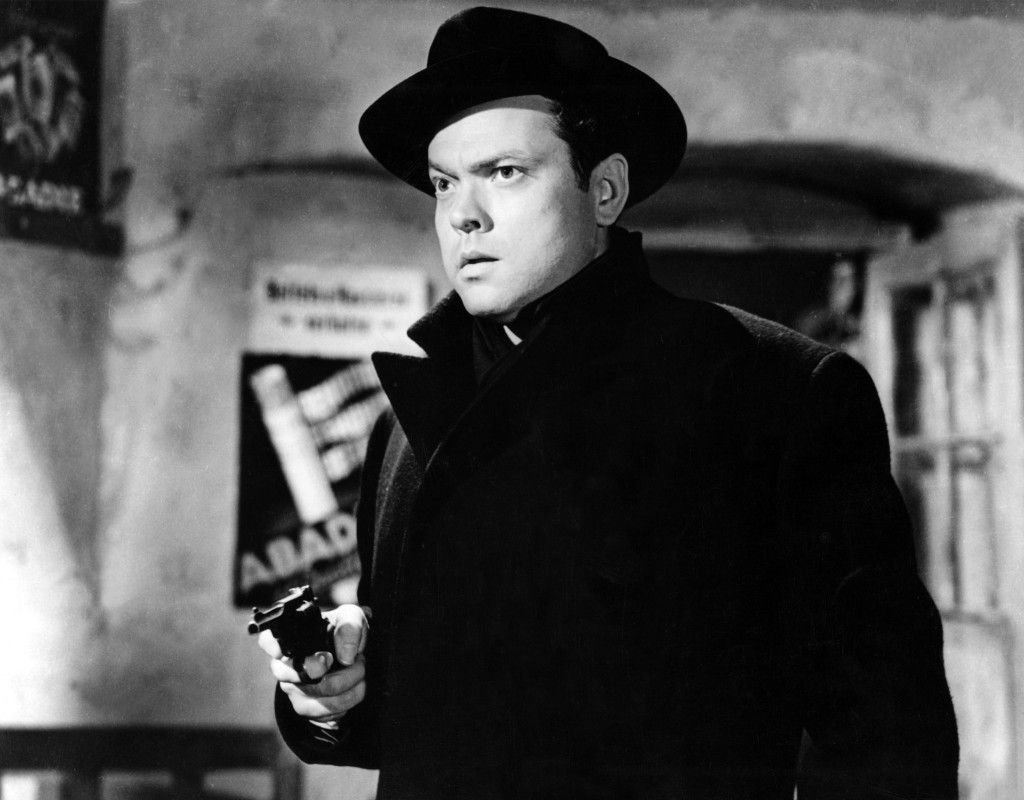Cannes: Orson Welles – Shadows & Light and The Third Man
 The first of two documentaries on Orson Welles to premiere at Cannes this year, each produced to coincide with the centenary of his birth, Orson Welles: Shadows & Light is a short and rather flimsy investigation into the great filmmaker that seeks to draw parallels between his work and his personal life.
The first of two documentaries on Orson Welles to premiere at Cannes this year, each produced to coincide with the centenary of his birth, Orson Welles: Shadows & Light is a short and rather flimsy investigation into the great filmmaker that seeks to draw parallels between his work and his personal life.
This isn’t a particularly new approach, and it’s the sort of technique that often raises heads whenever Citizen Kane is discussed, but director Elisabeth Kapnist takes the parallels further and uses all of Welles’ films to tell her story.
Structurally this works well, as Kapnist, aided by the talking heads of David Thomson, Henry Jaglom and Joseph McBride, finds ways in which to tie Welles’ films to particular aspects of his life in order to creative a neat, straightforward narrative. Unfortunately, the story is rather contrived, all-too convenient and often skims across the surface of interesting ideas so that Kapnist might maintain her tidy order.
There are passing mentions of how Welles would seem to abandon films in order to make another, and David Thomson’s theory that Welles was frightened by John Houseman’s reported homosexuality, but Kapnist does not appear interested in pulling at such threads. Instead she leaves them hanging, moving on to more clips and, very frequently, newly recorded shots of landscapes and the Hollywood sign. This fresh footage tends to be accompanied by rather oblique commentary, posing questions about Wells that, sadly, do little to engage any new ways of thinking about the filmmaker. Too frequently the commentary is vague comments, and neither as incisive or insightful as it tries to sound.
The film only really comes to life when presenting archival footage of Welles himself. We see him in various interviews, including one from 1972 with Jeanne Moreau, his collaborator on the 1968 TV movie The Immortal Story.
The many interview snippets that we see are almost all excellent, filled with amusing anecdotes from Welles and interesting nuggets of information about his films, but they are also most likely to be very familiar with most of the filmmaker’s fans.
Shadows & Light so desperately needed to present Welles from a new angle, or to stand on its own as a interesting creation in of itself, but it actually sits very close to the kind of DVD extra you might find on one of Welles’ fllms, ticking off all the usual boxes rather than finding something new.
The premiere of Shadows & Lights was followed by a screening of Carol Reed’s The Third Man in a new 4K presentation. The new restoration has been carried out by Deluxe at the behest of Studio Canal, working from a a master positive struck from the original negative, and made using prints from the film’s original release as a guide.
Robert Krasker’s cinematography for The Third Man is some of the most gorgeous black and white work of the nineteen-forties, and it is very well represented in this new restoration, and particularly in respect of the very well defined highlights and shadows that prove key to this film’s visual language.
There is a consistent, thin layer of grain throughout the film and, apart from a couple of very slight instances in which the image seemed to ‘jump’ a little as if a frame or two was missing, the only signs of wear and tear were very minimal,
The audio was also of a high standard, with only a very faint hint of hiss in the background. There was a rather large dropout towards the end of the film but this was almost certainly an issue with the projection, or the particular DCP on site on the night.
Carol Reed’s The Third Man is a beautiful feature that tells an engrossing story very well. Despite making only a brief appearance, Welles steals the film from right from under headline star Joseph Cotton’s nose.
This new restoration of The Third Man is getting a release in various countries, including the US, this June.